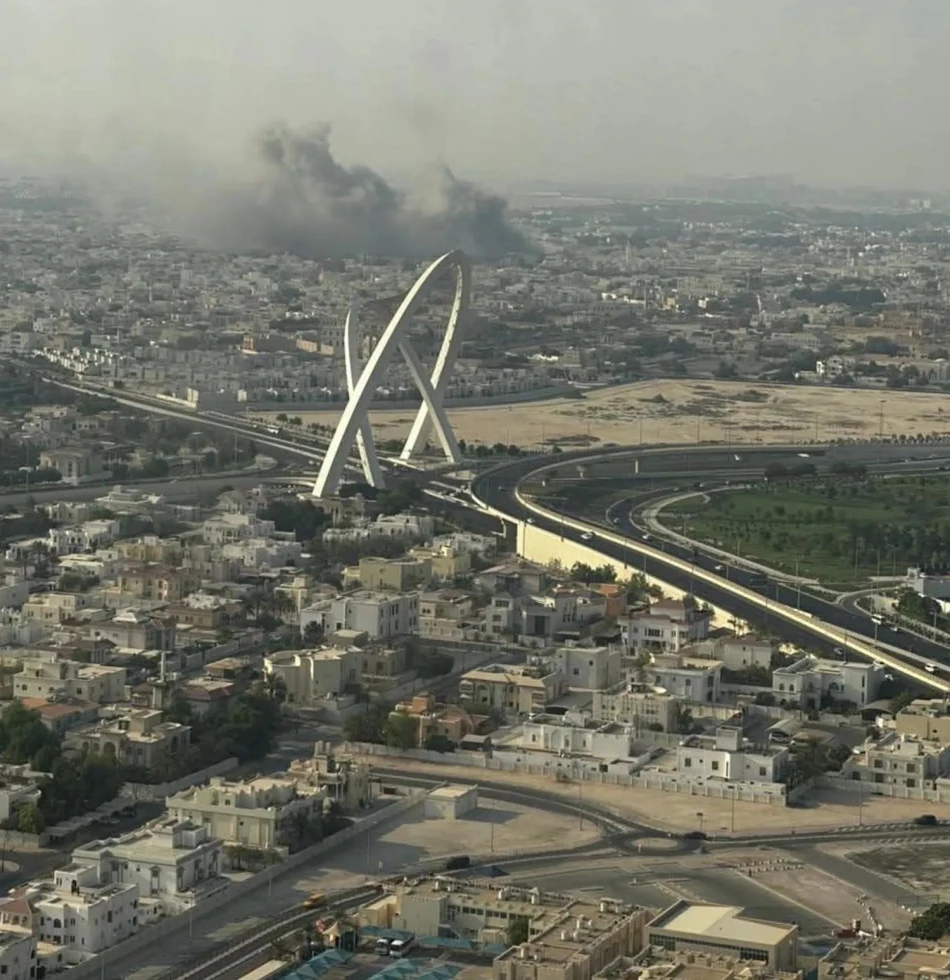
Explosions Rock Doha as Hamas Negotiating Delegation Targeted
Israel Strikes Hamas Leadership in Doha as Regional Tensions Escalate
Multiple explosions rocked Qatar's capital on Tuesday, targeting senior Hamas officials in what Israeli sources confirm was a deliberate assassination attempt against the Palestinian group's negotiating delegation. The strike represents a dramatic escalation that could derail ongoing ceasefire talks and signals Israel's willingness to extend operations beyond Gaza into allied nations hosting Hamas leadership.
The Attack: Precision Strike in Diplomatic Hub
Witnesses reported hearing several explosions in Doha on Tuesday, with smoke visible rising over the Katara cultural district. A senior Israeli official confirmed the operation, stating: "We attacked Hamas leadership in Qatar, including Khalil al-Hayya and Jabarin, and we are awaiting results."
Hamas sources indicated that their negotiating delegation was targeted during a meeting in the Qatari capital, marking the first known Israeli military action on Qatari soil. The timing appears calculated to disrupt Hamas's diplomatic activities at a moment when ceasefire negotiations had shown signs of progress.
Strategic Implications for Regional Diplomacy
Qatar's Delicate Position
The strike places Qatar in an extraordinarily difficult position. The Gulf state has carefully balanced its role as a key U.S. ally—hosting the largest American military base in the Middle East—while simultaneously serving as a mediator between Hamas and Israel. This attack directly challenges Qatar's sovereignty and its carefully cultivated neutrality in regional conflicts.
Qatar has historically provided safe haven for various political movements, from the Taliban to Hamas leadership, viewing this as part of its diplomatic strategy to maintain influence despite its small size. Tuesday's events may force Doha to reconsider this approach or demand stronger security guarantees from international partners.
Escalation Beyond Gaza
Israel's willingness to conduct operations in Qatar represents a significant expansion of its military campaign beyond the Gaza Strip. Previous Israeli operations against Hamas leadership have typically occurred in Gaza, Lebanon, or Syria—territories where Israeli military action, while controversial, follows established patterns of conflict.
Striking in Qatar, however, crosses into the territory of a nation with formal diplomatic relations with major powers and established international legal protections. This suggests Israeli leadership believes the strategic value of eliminating Hamas's external leadership outweighs potential diplomatic costs.
Impact on Ceasefire Negotiations
The targeted officials, particularly Khalil al-Hayya, have been central figures in Hamas's negotiating strategy. Al-Hayya has served as a key intermediary in talks mediated by Qatar and Egypt, making his targeting particularly significant for ongoing diplomatic efforts.
The strike effectively communicates Israel's position that Hamas's political leadership remains legitimate military targets regardless of their location or diplomatic activities. This approach mirrors Israel's long-standing policy toward Palestinian Liberation Organization leadership during previous decades, but applies it in a dramatically different geopolitical context.
Regional Response and Future Implications
The international community will likely scrutinize Israel's decision to conduct military operations within Qatar's borders. Gulf Cooperation Council states, already navigating complex relationships with both Israel and Palestinian factions, may view this as an unacceptable precedent that threatens regional stability.
For Hamas, the attack reinforces the organization's narrative that Israel remains committed to eliminating Palestinian leadership regardless of diplomatic engagement. This could strengthen hardline factions within Hamas while undermining those advocating for negotiated solutions.
The strike also tests the Abraham Accords framework, which has facilitated Israeli normalization with several Arab states. Qatar, while not a signatory, has maintained working relationships with Israel through various channels. Tuesday's events may complicate these arrangements and influence other regional powers' calculations about engaging with Israeli security concerns.
Most Viewed News

 Sara Khaled
Sara Khaled






